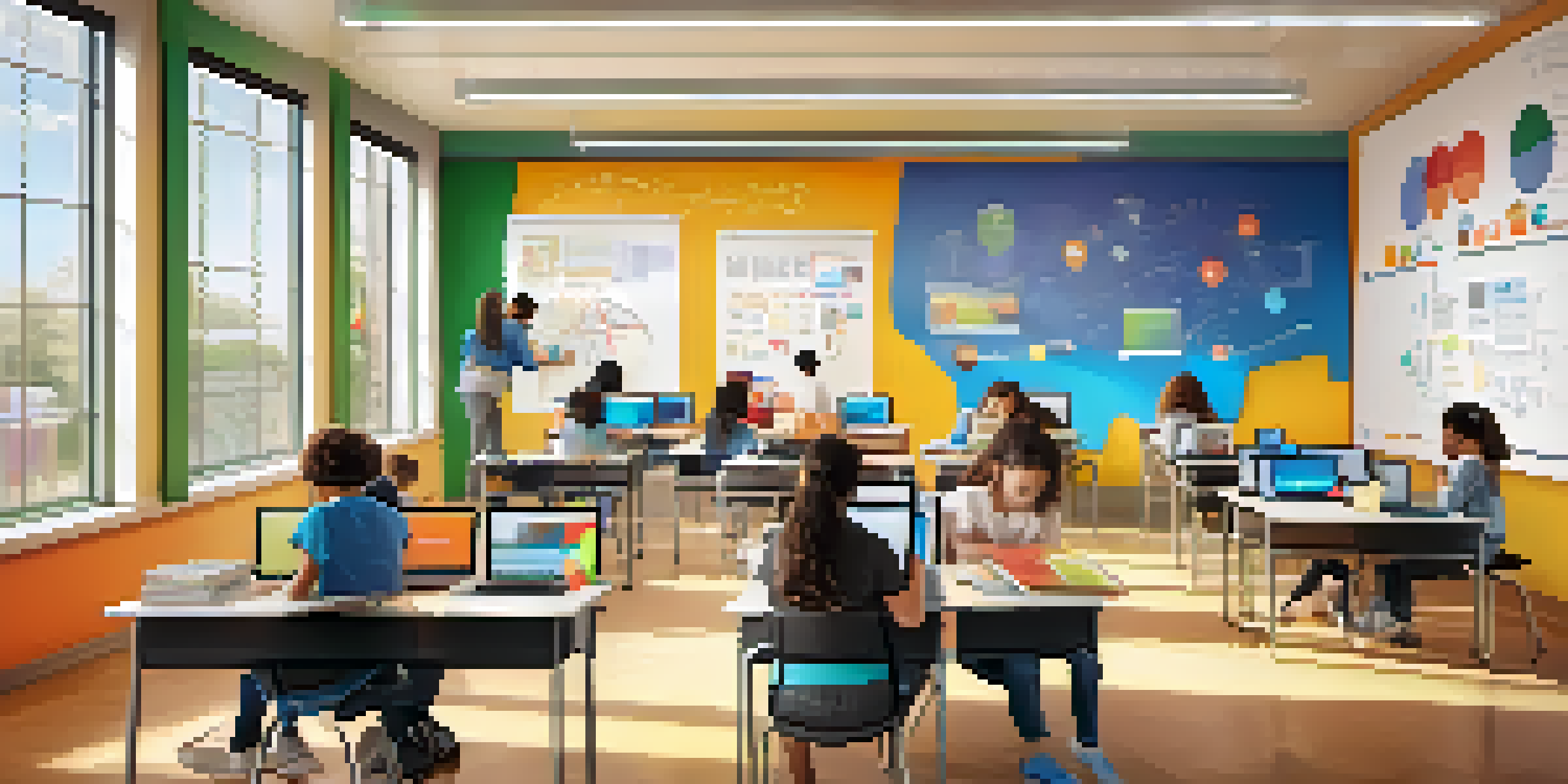How Technology Transforms Student Evaluation Methods Today

The Shift from Traditional to Digital Assessments
In the past, student evaluations were largely paper-based, relying on exams and essays. However, today's educational landscape is shifting towards digital assessments that offer more flexibility. This transition allows students to take tests online, which can reduce anxiety and create a more comfortable testing environment. Moreover, it enables educators to reach a broader range of students, accommodating different learning styles and needs.
The Role of Data Analytics in Evaluations
Data analytics plays a crucial role in transforming how student performance is evaluated. Educators can now track individual progress over time, identifying trends and areas needing improvement. For instance, if a student consistently struggles with certain topics, teachers can provide targeted support to address those weaknesses. This data-driven approach not only enhances learning outcomes but also fosters a more personalized educational experience.
Digital Assessments Enhance Learning
The shift from traditional to digital assessments offers flexibility and supports diverse learning styles.
Innovative Assessment Tools and Platforms
Various innovative tools and platforms have emerged to streamline the evaluation process. For example, applications like Google Forms and Quizlet allow teachers to create interactive quizzes that can be graded automatically. These tools not only save time but also provide immediate feedback to students, making the learning process more dynamic. Such resources encourage active participation, helping students engage deeply with the material.
The Importance of Formative Assessments
Formative assessments are becoming increasingly important in today's educational environment. Unlike traditional summative assessments, which evaluate learning at the end of a unit, formative assessments provide ongoing feedback throughout the learning process. This approach allows students to understand their progress and adjust their study habits accordingly. With tools that facilitate regular check-ins, educators can create a supportive learning atmosphere that promotes growth.
Data Analytics Personalizes Education
Data analytics allows educators to track student progress and provide targeted support for improved outcomes.
Integrating Peer Feedback in Evaluations
Incorporating peer feedback into student evaluations is another trend gaining traction. Technology enables students to share their work and receive constructive criticism from classmates easily. This collaborative approach not only enhances critical thinking skills but also fosters a sense of community among students. By valuing peer input, learners can gain diverse perspectives that enrich their understanding of the subject matter.
The Rise of Remote and Hybrid Learning Assessments
The rise of remote and hybrid learning has necessitated new evaluation methods. Educators are now adapting assessments to ensure they are fair and effective, regardless of the learning environment. For instance, online proctoring tools maintain the integrity of exams taken at home, while alternative assessment formats like presentations or portfolios are gaining popularity. These innovations ensure that all students can demonstrate their knowledge, irrespective of their situation.
AI Revolutionizes Assessment Methods
Artificial intelligence is transforming student evaluations by offering tailored quizzes and proactive interventions.
Artificial Intelligence in Student Evaluation
Artificial intelligence (AI) is making waves in student evaluation methods, providing smarter and more efficient assessment tools. AI can analyze vast amounts of data to identify patterns and predict student outcomes, allowing educators to intervene proactively. For example, AI-driven platforms can offer personalized quizzes based on a student's strengths and weaknesses. This tailored approach not only enhances learning but also empowers students to take charge of their educational journeys.
Future Trends in Student Evaluation Technology
Looking ahead, we can expect even more advancements in student evaluation technology. Emerging tools will likely focus on enhancing personalization and adaptability, making assessments more relevant to each student's unique learning path. Additionally, as technology continues to evolve, we may see the incorporation of virtual reality and gamification in evaluations, further engaging students. The future of student evaluations is bright, promising a more inclusive and effective educational experience for all.